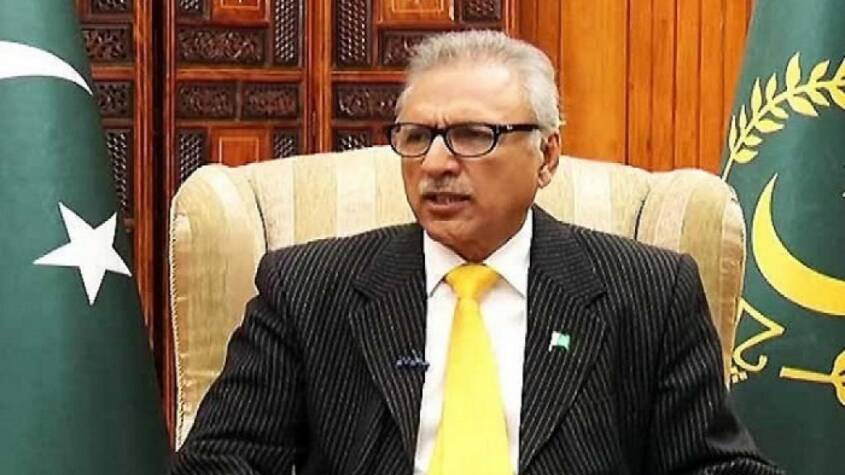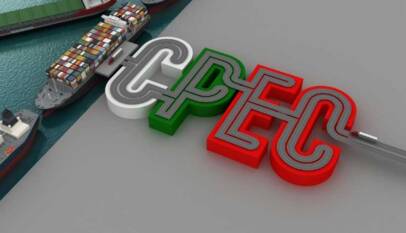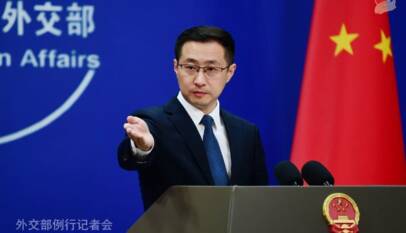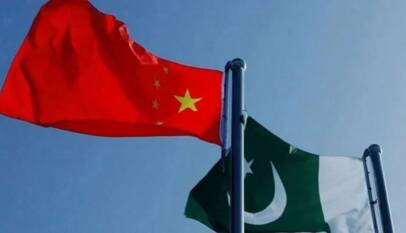CPEC Authority Established, Tax Concession in Gwadar Port and Zone also enacted
China-Pakistan Economic Corridor Authority has been estbalished with the Presidential Ordinance of President Arif Alvi. Arif Alvi exercised his power under clause (1) of Article 89 of the Constitution and the ordinance will be called "The CPEC Authority Ordinance 2019". CPEC Authority is established to expedite work on CPEC projects, find new avenues of growth, and explore the prospects of joint ventures and introduce global production units through regional and global connectivity. Besides, CPEC Authority Ordinance, President has also promulgated "The Tax Laws (Amendment) Ordinance 2019" to grant tax concessions to the Gwadar port and Gwadar free zone. Tax exemptions will be awarded on income tax, sales tax and customs duties in the Gwadar Port and its free zone area. The CPEC Authority has been placed under the Planning, Development and Reform Division under the Rules of Business of 1973. These steps depict the seriousness of Pakistan government to implement CPEC flagship framework.
ISLAMABAD:President Dr Arif Alvi on Monday promulgated two ordinances to set up the China-Pakistan Economic Corridor Authority and grant tax concessions to the Gwadar port and its free zone, sending a strong signal to Beijing that Islamabad is serious in implementing the multibillion dollar strategic initiative.
The ordinances were promulgated on the eve of Prime Minister Imran Khan’s visit to China where he is scheduled to discuss economic and political matters of mutual interests with the friendly country’s leadership.
“The CPEC Authority Ordinance 2019” and “The Tax Laws (Amendment) Ordinance 2019” are aimed to set up a new body to oversee and implement CPEC and give income tax, sales tax and custom duties exemptions to Gwadar port and Gwadar Free Zone.
The National Development Council – a joint forum of the civilian and military leadership – had approved the setting up of the CPEC Authority and extending tax concessions to Gwadar port in line with the Gwadar Port Concession Agreement.
How China views itself and the world
The military had floated idea of the CPEC Authority in 2016. However, the then prime minister Nawaz Sharif had shot it down. Last month, a joint parliamentary committee on CPEC also opposed the setting up of the authority through a presidential ordinance.
Through the ordinance, the government has given vast financial and administrative powers to the CPEC Authority – including making its executives immune to legal prosecutions and giving it the powers to make its own budget.
The CPEC Authority will build on the work carried out by the CPEC secretariat. During the PML-N government, about $50 billion contracts were announced under CPEC out of which about $28 billion got matured.
The challenge in front of the CPEC Authority would be to attract more Chinese financing into CPEC projects.
However, the test case for the government will be the $9 billion Main Line-I project. It is to be seen if it has the strength to go ahead with one the biggest components of CPEC, which is facing delays due to the government’s administrative weaknesses and financial constraints due to the IMF programme.
The CPEC Authority has been placed under the Planning, Development and Reform Division under the Rules of Business of 1973.
It will have the powers to enter into contracts, acquire and hold property – both movable and immovable – and it sue and be sued in its name, according to Section 3(2) of the ordinance.
The government has given complete financial autonomy to the authority. It will have complete powers to make its budget and that would be reviewed by the three-member Budget Committee comprising its own executives.
“All investments made by the authority shall be [made] with the approval of the budget committee”, according to Section 9(3) of the ordinance.
There will be a CPEC Fund, which shall vest in the authority and shall be utilised by the authority to meet all expenses and charges, according to Section 10 of the ordinance.
The sources of the CPEC Fund will be grants obtained by the authority, proceeds of investments made by the authority, loans obtained by the authority and any funds allocated by the federal government.
The authority will also have freedom to open and maintain its own bank accounts at scheduled banks.
This section of the ordinance appears in contravention to the Public Finance Management Act of 2019 that binds to keep all government proceeds in a single treasury account.
The authority will consist of a chairperson, chief executive Officer, executive director (operations), executive director (research) and six members.
The appointing authority of the chairperson, executive directors and members is the prime minister who can appoint them for a period of four years. The CEO will be minimum grade-20 civil servant.
Complete immunity has been ensured to the authority leadership and no case can be filed against them. The chairperson, executive directors and members cannot be civil servants. The top hierarchy of the authority will be deemed as public servants.
The authority has been given vast powers to call for any information related to CPEC activities, and in case of failure to provide the information, the authority will have powers to impose penalties on those who defy its orders.
The confidentiality of the information has been ensured and “no person shall communicate, or allow to be communicating, any record or information pursuant to this ordinance, to a person not legally entitling to that record or information or allow any person not legally entitled to that record or information to have access to any record obtained under this Ordinance.
“The authority shall be primarily responsible for coordination, monitoring and evaluation to ensure implementation of CPEC-related activities.
The authority shall exercise its powers and perform its functions in line with the framework and memorandum of understanding signed between Pakistan and China, and decisions taken at meetings of the Joint Cooperation Committee.
The CPEC authority will interface with China for identifying new areas of cooperation projects. It will organise the meetings of the JCC and joint working groups of CPEC and ensure inter-provincial and inter-ministerial coordination for CPEC-related activities.
The authority has also been tasked with building narrative of CPEC and undertaking research for long-term planning. The authority will hold at least one quarterly meeting. A CPEC Business Council will also be set up under the CPEC Authority.
The Tax Laws Amendment Ordinance 2019 is aimed at granting concessions to Gwadar port operators and businesses to be set up at the Gwadar free zone.
Through the ordinance, the government has amended the Income Tax, Sales Tax and Customs acts to give tax concessions.
After the legal changes, Chinese are expected to make some major investments in Gwadar.
CPEC’s Success Story: $25 Billion Invested Across 38 Completed Projects
ISLAMABAD: A total of 38 projects worth over $25 billion have been completed and 23 develo…












